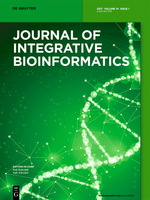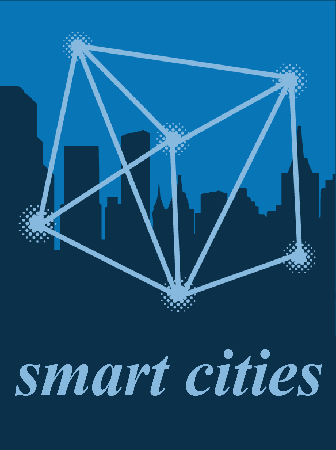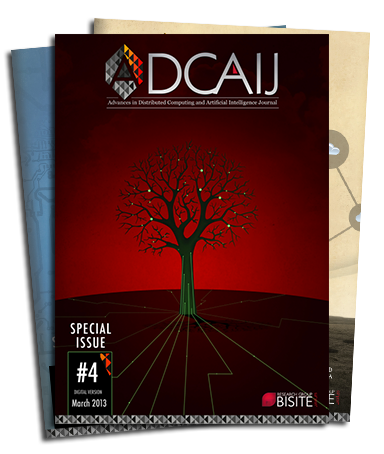20th International Conference on Practical Applications of Computational Biology & Bioinformatics (PACBB'26)
The success of Bioinformatics in recent years has been prompted by research in Molecular Biology and Molecular Medicine in several initiatives. These initiatives gave rise to an exponential increase in the volume and diversification of data, including nucleotide and protein sequences and annotations, high-throughput experimental data, biomedical literature, among many others.
Systems Biology is a related research area that has been replacing the reductionist view that dominated Biology research in the last decades, requiring the coordinated efforts of biological researchers with those related to data analysis, mathematical modeling, computer simulation and optimization.
The accumulation and exploitation of large-scale data bases prompts for new computational technology and for research into these issues. In this context, many widely successful computational models and tools used by biologists in these initiatives, such as clustering and classification methods for gene expression data, are based on Computer Science/ Artificial Intelligence (CS/AI) techniques. In fact, these methods have been helping in tasks related to knowledge discovery, modeling and optimization tasks, aiming at the development of computational models so that the response of biological complex systems to any perturbation can be predicted.
The 20th International Conference on Practical Applications of Computational Biology & Bioinformatics (PACBB'26) aims to promote the interaction among the scientific community to discuss applications of CS/AI with an interdisciplinary character, exploring the interactions between sub-areas of CS/AI, Bioinformatics, Chemoinformatics and Systems Biology.
Brand new ideas in these fields are sought, as well as substantial and relevant revisions and actualizations of previously presented work, project summaries and PhD thesis presented or not.
Topics
PACBB welcomes contributions reporting substantial, original and previously unpublished work in all areas of Bioinformatics, Chemoinformatics and Systems Biology. The papers can be presented from a formal, methodological, technical or applied point of view.
Biological areas of interest include, but are not limited to:
- Next generation sequencing
- Comparison and alignment methods
- Motif, gene and signal recognition
- Molecular evolution
- DNA twisting and folding
- High-throughput data analysis (transcriptomics, proteomics, etc)
- Phylogenetics and phylogenomics
- Determination or prediction of the structure of RNA and proteins
- Gene expression data analysis
- Identification of metabolic pathways
- Functional genomics
- Biomarker identification
- Computational problems in genetics such as linkage and QTL analysis, linkage disequilibrium analysis in populations, haplotype determination, SNPs
- Molecular docking and drug design
- Molecular and cellular interactions
- Emergence of properties in complex biological systems
- Visualization of biological systems and networks
- Data and software integration
- Biomedical ontologies
- In silico optimization of biological systems
- Metabolic engineering applications
- Cell simulation and modeling
- Metabolic, regulatory and signaling models/ networks: properties, dynamics, inference/ reconstruction
- Metabolomics/ metabolic fingerprints
- Health-care applications
- Bio imaging
Computacional areas of interest include, but are not limited to:
- Knowledge Discovery and Data Mining techniques
- Text Mining and Language Processing
- Machine Learning and Pattern Recognition
- Rough, Fuzzy and Hybrid Techniques
- Hidden Markov Models
- Bayesian Approaches
- Artificial Neural Networks
- Support Vector Machines
- Evolutionary Computing
- Case-Based Reasoning systems
- Non-linear dynamical analysis methods and Intelligent signal processing
- Feature selection
The aim of the Doctoral Consortium is to provide a framework as part of which students can present their ongoing research work and meet other students and researchers and obtain feedback on lines of research for the future.
The Doctoral Consortium is intended for students who have a specific research proposal and some preliminary results, but who are still far from completing their dissertation.
All proposals submitted to the Doctoral Consortium will undergo a thorough reviewing process with the aim of providing detailed and constructive feedback. The accepted submissions will be presented at the Doctoral Consortium and published in the conference proceedings.
The submissions should identify:
- Problem statement
- Related work
- Hypothesis
- Proposal
- Preliminary Results and/or Evaluation Plan
- Reflections
Format
All papers must be formatted according to the LNNS template, with a maximum length of 10 pages (6 pages for Doctoral Consortia), including figures and references:
Submission
All proposed papers must be submitted in electronic form (PDF format) using the PACBB conference management system.
Review process
PACBB welcomes the submission of papers and gives preference to the topics listed under the call. All submitted papers will undergo a thorough review process; each paper will be refereed by at least three experts in the field based on relevance, originality, significance, quality and clarity.
The papers must consist of original, relevant and previously unpublished sound research results related to any of the topics of the conference.
Publication
Accepted papers will be included in PACBB Proceedings. At least one of the authors will be required to register and attend the symposium to present the paper in order to include the paper in the conference proceedings. All the accepted papers will be published by Lecture Notes in Networks and Systems series of Springer Verlag.
** Indexing: The books of this series are submitted to DBLP, INSPEC, Norwegian Register for Scientific Journals and Series, SCImago, SCOPUS, WTI Frankfurt eG, zbMATH, Google Scholar, Springerlink. **
Special Issues
Authors of selected papers from PACBB will be invited to submit an extended and improved version to special issues in different journals:
Authors of selected papers from PACBB and the co‑located events will be invited to submit an extended and improved version of their work to the Advances in Distributed Computing and Artificial Intelligence Journal (ADCAIJ) (ISSN: 2255‑2863), which is indexed in Web of Science and Scopus, and listed in DOAJ, ProQuest, Google Scholar, WorldCat, Dialnet, Sherpa ROMEO, Dulcinea, Ulrichsweb, BASE, and Academic Journals Database. Journal metrics: JCR (2024) – Journal Impact Factor (JIF) 1.6, Q3 in Computer Science, Artificial Intelligence; JCI (2024) – category placement Q4; SJR (2024) – 0.219. The journal has also been awarded the FECYT Quality Seal (9th edition, 2025).

To Be Updated
General deadlines
-
Deadline
17th April, 2026
-
Doctoral Consortium deadline
24th April, 2026
-
Notification of acceptance
19th June, 2026
-
Camera-Ready papers
15th July, 2026
-
Conference Celebration
21st-23rd October, 2026
Program Committee Chairs

Miguel Rocha, University of Minho (Portugal)

Sara Cuadrado, Icahn School of Medicine, Mount Sinai (USA)
Steering committee chairs

Florentino Fdez-Riverola, University of Vigo (Spain)

Mohd Saberi Mohamad, United Arab Emirates University (United Arab Emirates)

Carolina Zato Domínguez, University of Salamanca (Spain)
Advisory board

Ana Belén Gil-González, University of Salamanca (Spain)

Gabriella Panuccio, Istituto Italiano di Tecnologia (Italy)
Organizing committee Chair (tentative)

Salvatore Villani, University of Naples Federico II (Italy)
Chair
PACBB conference



